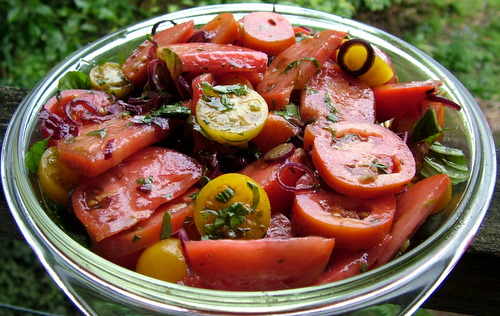Wonderfully easy to read.
Share Lone's exploration of her genetic history and gain a deeper
understanding of how genetic variations help to shape your personality,
relationships, emotions and more.
Her reflections on neo-eugenics, emotional resilience, genetic
plasticity and how coffee can affect breast size... if you have the
right genes.
I know what you're thinking! Very different topics - genetics and agriculture - but for me, I have been thinking of how our modern lifestyle places people under extraordinary pressures that they may not be biologically equipped to handle.
This is concerning not only in terms of our health, but also in terms of reducing our capacity to adapt to a changing world - considering climate, land use and culture.
How can we, as a society, hope to forge a new path, if we can't be bothered to get out of bed in the morning?
If you're depressed and struggling, you're not going to be thinking behaviour change, advocacy or anything at all other than 'what's for breakfast' ... which will probably include cheap wheat and sugar from your local industrial food outlet. Possibly with a bit of some heavy metal or a bit of carbon that can be traced back to it's pre-historic origins.
The rate of depression in first world countries - not to mention allergies, auto-immune diseases, decreasing fertility and cancer - is way too high. I've heard many people suggest that people in third world countries are too busy surviving to have time to get depressed. That is part of the story. Certainly I've met some people who manage to survive on meat and potatoes... not everyone would be OK on that diet! These people seem to be made of pretty sturdy stock.
Many people who are actually in the midst of a deep despair (I've known a few) feel that they have no choice but to medicate themselves for either short periods of time, or their entire life. I suggest that these people are the canaries in the coal mine for our society - considering stress from perceptions of crime in densely populated cities splashed all over the media, lack of community, low quality food and toxins.
We understand that health challenges like depression do have a genetic component and Frank's exploration of this puzzle is worth reading, just to understand that scientists are still piecing together the pieces of the puzzle. We medicate as a stop gap before the 'perfect' treatment that might be developed in a number of years. Maybe this perfect treatment will be a little protein that flicks the epigenetic 'switch' back to 'normal' (whatever that means).
After I thought about these connections between sustainabilty and mental health... I went looked up the ingredients that the body needs to make a batch of serotonin. This information is not that well known even by those interested in nutrition.
- Tryptophan
- Iron
- Vitamin B3
- Calcium
- Folic Acid
- Magnesium
- Zinc
- Vitamin C
- Vitamin B6
Wonderful... the ingredient list for mental health. Perhaps I should add 'act, belong, commit', which is a great public health campaign in Australia at the moment.
Consider that the following anti-nutrients can be present in high doses in either our environment or our food supply.
- Mercury (blocks iron and zinc, which sit near it on the periodic table)
- Copper (blocks iron, folic acid, zinc and magnesium)
- Cadmium (blocks zinc, magnesium)
I'm aware that cadmium is present in industrial fertilisers. It becomes more available to the plants in unhealthy or degraded acidic soils which occur in marginal farming country - where farmers may be pushed financially.
Here in Western Australia we don't have a lot of natural minerals in our ancient soils - zinc is one example. We can try to get it from seafood and eggs and so on, but realistically, chances are that we're on the low side. Supermarkets can't get the high levels of Vitamin C - the older the fresh food; the lower the levels. This is because Vitamin C is nature's anti-oxidant (preservative).
I don't know about you, but I find this biochemical reality very very interesting. For me, it is a nail in the coffin for industrial agriculture using chemical fertilisers. It is also a glimmer of hope for those who are prone to depression - the canaries in the coal mine... a warning sign that our society is getting it wrong!
It highlights for me the many many reasons we should be growing some of our own food on real compost... aside from deliciousness!
If you're feeling excited: have a read of Peter Dingle and get into local, organic produce!


